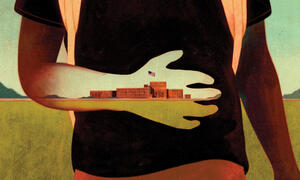publication
Only Young Once: The Urgent Need for Reform of Louisiana’s Youth Justice System
[2023] This report explores how perceptions of Black youth in Louisiana’s school and juvenile justice systems contribute to an overreliance on punitive measures, leading to stark racial disparities.
September 12, 2024



